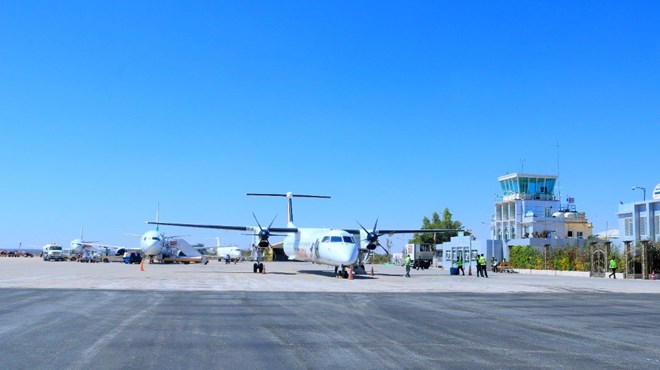Somaliland Issues Over-Flight Permit Directive Amid Row Over Visas and Airspace Control

GOOBJOOG NEWS|HARGEISA: Somaliland has issued a new directive requiring all civil aircraft — scheduled, non-scheduled, commercial and general aviation — to obtain explicit over-flight permits before entering, transiting or operating within Somaliland’s airspace. The rule comes into effect on 10 November 2025 and is framed as an assertion of Somaliland’s “complete jurisdiction and exclusive sovereignty” over its land, maritime and airspace.
According to a statement this evening from the ministry of Civil Aviation & Airports Development (MOC AAD), the measure aims to “ensure safe, secure, and orderly air navigation in accordance with ICAO standards”, and to boost air-traffic management, meteorological and aeronautical information services as well as emergency, search-and-rescue and technical landing support at Hargeisa’s Egal International Airport and Berbera International Airport. It warned that unauthorised over-flight without prior approval would constitute a violation of national sovereignty and may face enforcement under national and international aviation laws.
Visa row escalates with airlines, deepening Somaliland–Somalia split
The move comes amid intensifying friction between Somaliland and the internationally recognised Federal Government of Somalia in Mogadishu over control of airspace and immigration policy. In August 2025 Somalia introduced a mandatory electronic visa (e-visa) system for all foreign passport-holders entering any part of its territory, including Somaliland. Under this policy, airlines must pre-screen travellers via Somalia’s online portal.
Somaliland rejected the e-visa requirement, asserting that it issues its own visas on arrival and does not recognise Somalia’s immigration jurisdiction. The impasse has triggered confusion among airlines, travellers and airports, especially in the Gulf and East Africa hubs.
The airline Flydubai has become a flashpoint. According to Somali government officials, the UAE carrier flew passengers into Hargeisa without verifying they had obtained the Somali-authorised e-visa — thereby defying Mogadishu’s directive. Somaliland officials, in turn, say airlines that continue to enforce Somalia’s e-visa for flights to Somaliland risk being banned by Hargeisa.
A broader power struggle in the skies
The over-flight permit directive adds another layer to the long-running stalemate. Under current arrangements with the International Civil Aviation Organization (ICAO), Somalia retains de-facto control over air traffic control covering Somaliland’s airspace — a situation Hargeisa says undermines its self-governance and sovereignty claims.
By issuing a permit-requirement and signaling enforcement of its own visa regime, Somaliland is signalling its intent to operate independent aviation governance — even without international recognition. Experts say this could prompt airlines to pick sides or demand dual authorisations and could introduce operational uncertainty, higher costs and delays for carriers serving the region.
What it means for travellers and operators
For airlines and aviation operators, the directive means an added administrative layer when flying into or through Somaliland. They must arrange over‐flight permission through Hargeisa, coordinate with local air-traffic services and might face enforcement action if they land without it. For foreign travellers the visa row remains murky: they must check whether their carrier accepts Somalia’s e-visa or relies on Somaliland’s visa-on-arrival.
For passengers entering via Hargeisa, the risk of being denied boarding or facing additional fees remains real, as previous case-files show. The aviation rule-book appears to have become a battleground for unresolved political status.